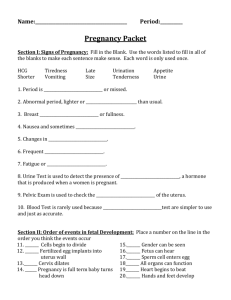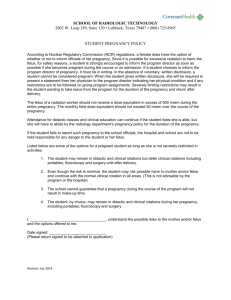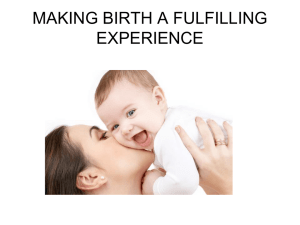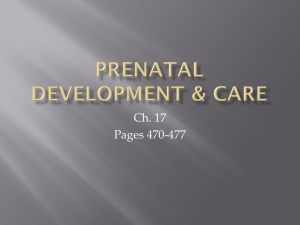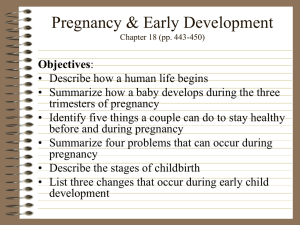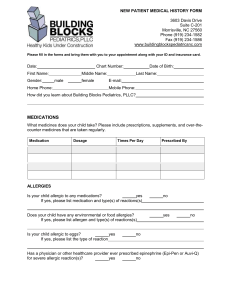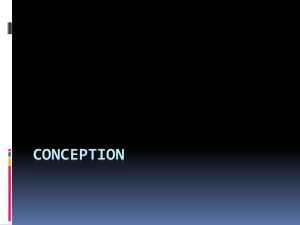Pamphlet on old age pregnancy
advertisement
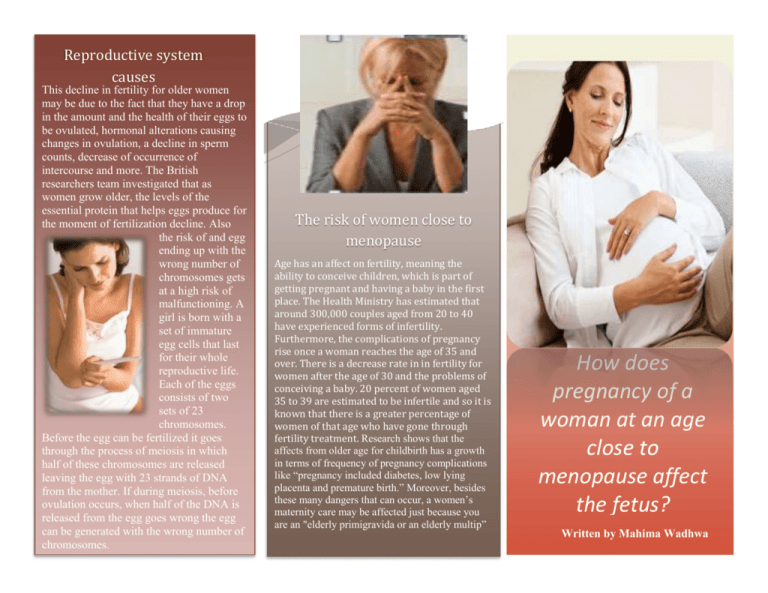
Reproductive system causes This decline in fertility for older women may be due to the fact that they have a drop in the amount and the health of their eggs to be ovulated, hormonal alterations causing changes in ovulation, a decline in sperm counts, decrease of occurrence of intercourse and more. The British researchers team investigated that as women grow older, the levels of the essential protein that helps eggs produce for the moment of fertilization decline. Also the risk of and egg ending up with the wrong number of chromosomes gets at a high risk of malfunctioning. A girl is born with a set of immature egg cells that last for their whole reproductive life. Each of the eggs consists of two sets of 23 chromosomes. Before the egg can be fertilized it goes through the process of meiosis in which half of these chromosomes are released leaving the egg with 23 strands of DNA from the mother. If during meiosis, before ovulation occurs, when half of the DNA is released from the egg goes wrong the egg can be generated with the wrong number of chromosomes. The risk of women close to menopause Age has an affect on fertility, meaning the ability to conceive children, which is part of getting pregnant and having a baby in the first place. The Health Ministry has estimated that around 300,000 couples aged from 20 to 40 have experienced forms of infertility. Furthermore, the complications of pregnancy rise once a woman reaches the age of 35 and over. There is a decrease rate in in fertility for women after the age of 30 and the problems of conceiving a baby. 20 percent of women aged 35 to 39 are estimated to be infertile and so it is known that there is a greater percentage of women of that age who have gone through fertility treatment. Research shows that the affects from older age for childbirth has a growth in terms of frequency of pregnancy complications like “pregnancy included diabetes, low lying placenta and premature birth.” Moreover, besides these many dangers that can occur, a women’s maternity care may be affected just because you are an "elderly primigravida or an elderly multip” How does pregnancy of a woman at an age close to menopause affect the fetus? Written by Mahima Wadhwa Medical disorders Affects on the fetus It is a fact that by being an older woman you have higher chances in growing medical disorders that include, high blood pressure and diabetes, which can affect pregnancy. Because of medical disorders, due to the risk of complications that may occur during a pregnancy, they will frequently have to get more special tests done, have more care visits from friends and family, and have more care during labor and delivery. With high blood pressure, trouble may occur with the growth of the fetus. Moreover, women with diabetes have a high risk of gaining high blood pressure, pregnancy loss, and a state called macrosomia where the fetus may grow abnormally larger than usual. The age of a woman certainly has an affect on the fetus as it can cause them to develop different kinds of diseases and risks. It is found that elder women have a higher chance in giving birth to a baby with a genetic abnormality some known as Down syndrome, Edwards’s syndrome or pataus syndrome. Figures show that there is a higher risk that the fetus may die in the mother’s womb by the end of the pregnancy that are aged 40. “In the UK, figures for 2006 show that the rates of stillbirth were steady at around five to six babies per 1,000 births for women aged 20 to 39, but increased to just under nine babies per 1,000 births for women aged 40 and over”. A mother’s age does affect the increase in dangers to the fetus with a birth defect, which can be caused by nondisjunction, which is the abnormal division of the egg. Unequal chromosomes are the result at the end of the division. Women in their 20’s having a child have a 1 in 1400 chance of giving birth to a child with down syndrome. These chromosomal malformations contribute to the occurrence of miscarriage in elder women. Studies have shown that while the risk of miscarriages for women age 20 is 12 to 15%, this figure rises to about 25% for women at age 40. References Conger, C. (2012). Do baby boomers have a higher incidence rate of depression than other generations? In Fit & health. Retrieved from http://health.howstu ffworks.com/ well ness/ aging/baby-boomers/baby-boomer-depression. htm Gloriar. (2011, August 17). Macrosomia photos and related clinical trials. In Cure byte. Retrieved from http://trialx.com/curebyte/2011/08/17/ macrosomia-photos-and-related-clinical-trials/ Health and pregnancy. (2012). Webmd. Retrieved from http://www.webmd.com/baby/pregnancy-after-35 How age affects pregnancy. (2012, January). Babycenter. Retrieved from http://www.babycenter.com.my/ pregnancy/antenatalhealth/ageandpregnancy/ Joshi, M. (2010, September 5). Why older women are more prone to fertility problems. In Topnews.in. Retrieved from http://www.topnews .in/health/why-older-women-are-more-prone-f ertility-problems-28587 Later childbearing. (2011, August). The American college of obstetricians and gynecologists . Retrieved from http://www.acog.org/~/media/For%20 Patients/faq060.pdf?dmc=1&ts=20120510T103 6568355 Pregnancy risks after the age of 25. (2012). Whatafy. Retrieved from http://whatafy.com/pregnancyrisks-after-the-age-of-35.html
